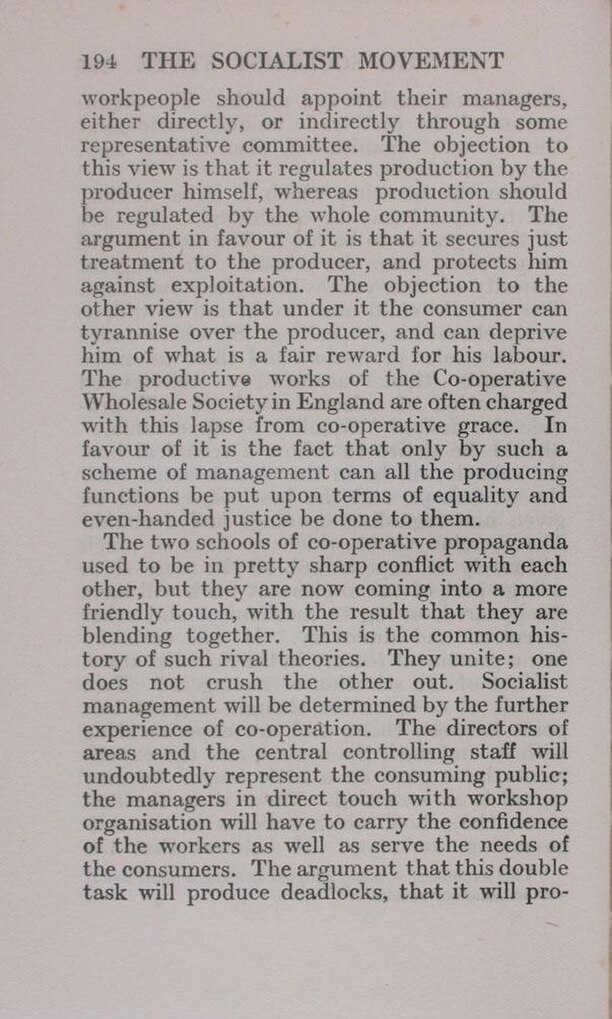workpeople should appoint their managers, either directly, or indirectly through some representative committee. The objection to this view is that it regulates production by the producer himself, whereas production should be regulated by the whole community. The argument in favour of it is that it secures just treatment to the producer, and protects him against exploitation. The objection to the other view is that under it the consumer can tyrannise over the producer, and can deprive him of what is a fair reward for his labour. The productive works of the Co-operative Wholesale Society in England are often charged with this lapse from co-operative grace. In favour of it is the fact that only by such a scheme of management can all the producing functions be put upon terms of equality and even-handed justice be done to them.
The two schools of co-operative propaganda used to be in pretty sharp conflict with each other, but they are now coming into a more friendly touch, with the result that they are blending together. This is the common history of such rival theories. They unite; one does not crush the other out. Socialist management will be determined by the further experience of co-operation. The directors of areas and the central controlling staff will undoubtedly represent the consuming public; the managers in direct touch with workshop organisation will have to carry the confidence of the workers as well as serve the needs of the consumers. The argument that this double task will produce deadlocks, that it will pro-
